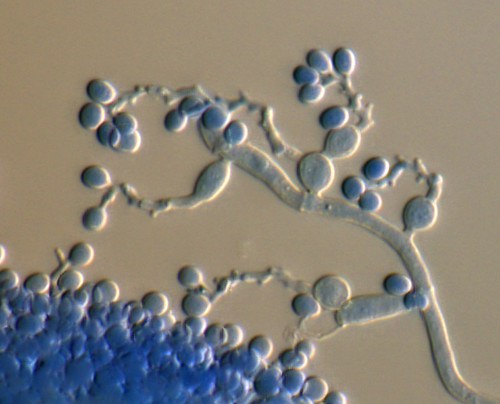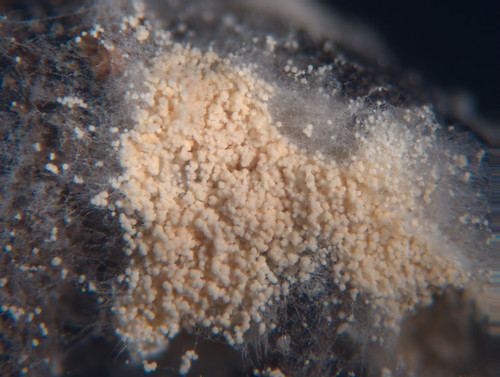
This post is part of the Science Tuesday feature series on the USDA blog. Check back each week as we showcase stories and news from the USDA’s rich science and research portfolio.
If you want to find a fungus that controls disease-spreading insects, you might want to go somewhere known for its biodiversity. So it makes sense that USDA Agricultural Research Service (ARS) microbiologist Richard Humber will be traveling to Brazil over the next three years to join Brazilian scientists in searching for fungi to control black flies, sand flies and the types of mosquitoes that spread malaria, dengue and yellow fever.
Fungi are now used to control insects on crops. Beauveria bassiana, a fungus found in soils throughout the world, is widely sold for controlling thrips, whiteflies, aphids and beetles. Different types of fungi are also sometimes used to control mosquitoes, but they are not easy to handle or to apply, and their effectiveness has been questioned.
Brazil is considered a leader in using fungi and other microbial agents as biocontrols, and Humber’s search is being funded by a Brazilian government program known as “Science Without Borders.”
Humber is a natural fit for the project. He is curator of the ARS Collection of Entomopathogenic Fungal Cultures in Ithaca, N.Y., and has spent years helping Brazilian scientists maintain and upgrade the quality of their collection at the Institute of Tropical Pathology and Public Health at the Federal University of Goiás, in the city of Goiânia.
In its collection, ARS maintains more than 12,500 fungal cultures from all over the world. The isolates are stored in sealed vials inside tanks containing liquid nitrogen that keep the fungi preserved at a rather chilly temperature of minus 317 degrees Fahrenheit.
As part of the project, Humber and his Brazilian colleagues will make three trips into a savannah-like tropical region of Brazil known as the “Cerrado.” The area, made up of low lying forests and grasslands, is an ecosystem being threatened by encroaching farms and urban development. The scientists are not sure what they will find or how many isolates they will bring back, but what they collect will be kept in both the Brazilian and ARS collections. The fungi collected will infect only insects, and pose no risk to human health.

